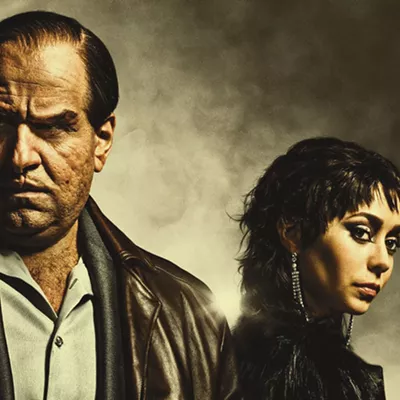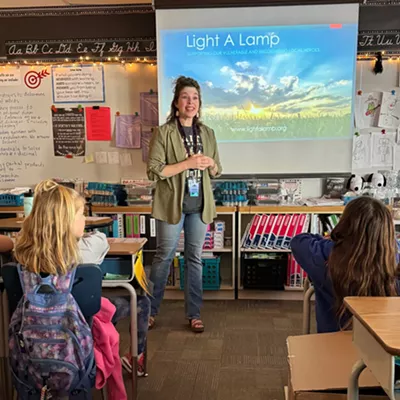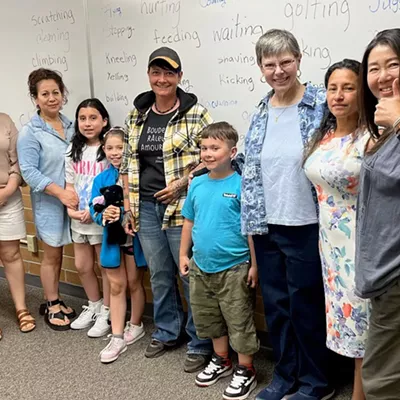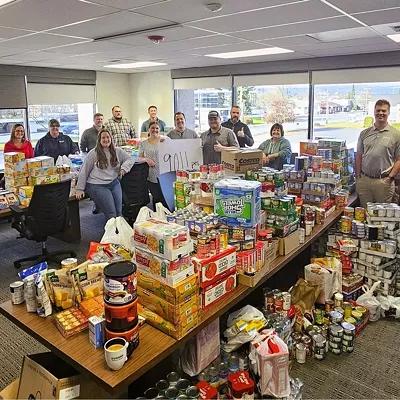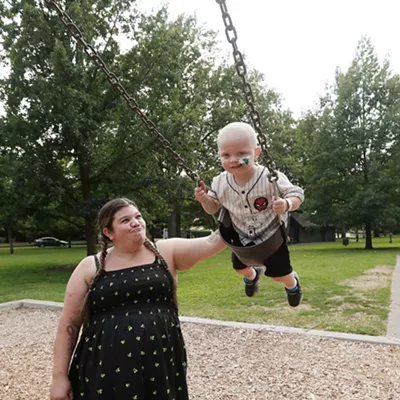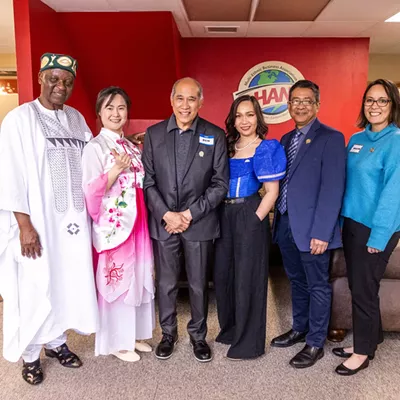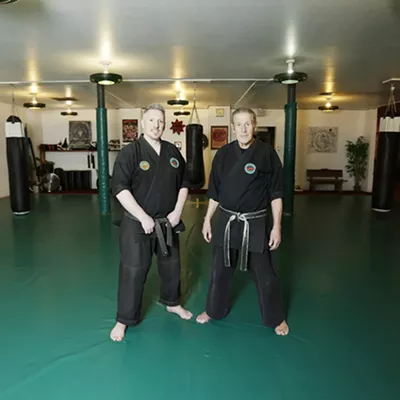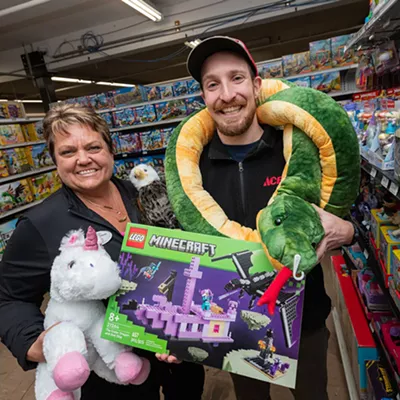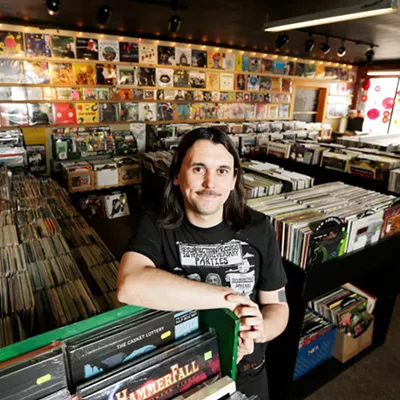For Kate Burke, stepping into her role as the executive director of River City Youth Ops this June marked the start of a new phase for herself and the organization.
"When I saw the job description, I realized that this is something that truly brings me joy," she says. "Working with young people, community building, networking and working for something that you believe in is super important to me."
The sense of purpose and positivity that the position offered were especially important to Burke. Her time as a Spokane City Council member was still fresh in her mind; the burnout from that experience had led her to step away from elected office after her first term ended in 2021.
She followed that with a short stint as a grant writer before upping sticks and driving across the United States with her girlfriend — now wife — Sarah. After making it to Florida, the pair sold their car and took off for Central and South America, where they could savor the culture and polish their Spanish.
More than just an opportunity for exploration and self-edification, the year of travel was a chance for Burke to ground herself and rediscover her priorities. And what she found was that, looking back, her direct involvement with youth-focused community organizations was a deeply fulfilling period of her life.
Which is why her arrival at River City Youth Ops is also a kind of homecoming.
Before adopting its current name in 2017, River City Youth Ops was Project Hope Spokane. Officially founded in 2008 by Pat and Connie Malone, the organization began as a way to get teens in the West Central neighborhood engaged with agriculture through the farming of urban plots and selling their produce.
Two years later, Burke joined Project Hope as a staff member.
"I got to work with the youth through the summer program and create the market space that we hosted once a week. And it was amazing," she says. "So when I got back [to Spokane] after moving to another city, the first thing I did was ask to join the board because I loved the organization so much."
Her board service came at a "really vital time," Burke says, as Project Hope was then growing beyond the Malones' stewardship.
"The board worked really hard to align themselves together, to create a mission, and really move forward on that," Burke says. "We were able to give it a new direction, a new mission, a new vision. During that time, there was a really great infrastructure for the programs and for the organization."
But as Project Hope scaled up, choosing the name River City Youth Ops to reflect its new image, there were growing pains.
After Burke had termed off the board, she observed "transition periods" where "the foundation began to crack a bit." The organization drifted from its roots in urban gardening and its tight focus on 12- to 18-year-olds in West Central. That evolution put a strain on its resources, which in turn impacted later board and staff efforts to course correct.
Now that she's been tapped to lead the organization, Burke is working to realign River City Youth Ops with its original scope and mission. She's been busy developing and updating policies, recruiting new board members and reconnecting with the organization's support base.
"In my first 30 to 40 days, I spent a lot of time going back through the history of the organization and reaching back out to folks who were a part of it, whether it's being on the board, a past participant, a past donor or one of our past partners," she says. "Through that, I ended up doing a survey to all of those folks to ask them where they see us going and where we could do better. And I got some really great information from that. What I found is that one of our strong suits as an organization is our longevity in the community."
As if to underscore that longevity and the lasting relationships, this past weekend Burke held an informal reunion for past participants, partners, donors and board members. She's also moving the organization's offices back into their former home in Salem Lutheran Church.
And when she sought to augment the board with more financial expertise, she deliberately reached out to Bakari Green, a former youth participant and Whitworth University grad who now works as an accountant.
But even with all these nods to the organization's history, Burke is looking to its future. She recently brought on Chelsea Hardenbrook as the new operations manager. While the two strategize how best to relaunch the nonprofit's core summer program, they're laying the groundwork for a new fall program called the West Central Bike Bus.
That initiative will create a bike group and safe route for students at Holmes Elementary School, Yasuhara Middle School and North Central High School. Burke acknowledges that it's not centered on agriculture, but it will still provide neighborhood youth with a chance to interact constructively and benefit their community at the same time.
"What really resonates [with our participants] is what we teach them through our programming," she says. "Things like team building, communication skills, exposure to different things, learning how to work, learning how to navigate kind of different systems and the world that's out there. That's what they carry with them."♦





